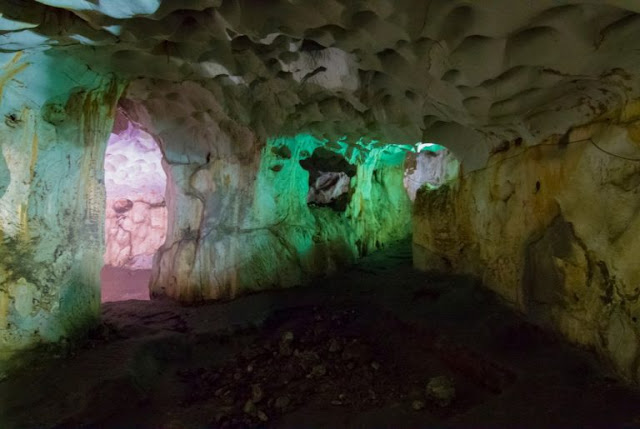Karain Cave in Antalya
According to archaeology, people may have lived at
Karain Cave over Two thousand years ago. Instruments created by humans were
discovered in the cave, indicating that 25 000 years ago, people sought refuge
there. The Hacilar Neolithic town, located just below Karain Cave on the other
side of the mountains, was connected to the last inhabitants of the cave.
Numerous pieces of evidence show the connections between Anatolia's Neolithic
communities. However, the human face carvings at the Karain Cave are patterned
after Levant culture artifacts found along the Mediterranean's eastern coast.
Given that the sea level was 130 meters higher than
it was 15,000 years ago, it was easier for seamen to anchor off the Anatolian
Mediterranean Coast. Karain settlers migrated from the Mediterranean Water 15
000 years ago as the sea level began to drop. Karain Cave was revered by the
people of the southwest when the Greek colonization of Anatolia first began. On
the other side of the highlands of what is now Antalya, Turkey, Termessos
flourished, and Greeks left monograms at the gateway as well.
You must have a reason to apply for a turkey visa online now. Visit our
website and apply for a turkey
e-visa online.
Where is Karain?
The Antalya-Burdur Road is pretty close to Karain
Cave. Four routes go to Antalya, a coastal city. The first one is from Denizli,
the second one is from Burdur, the third one is from Isparta, and the fourth
and most well-known one is from Konya. The Burdur path is more appealing than
the others because it passes through historic cities like Sagalassos, Termessos,
and Karain Cave. The old town of Antalya is only 40 kilometres away from Karain
Cave. After spending 30 minutes travelling from Termessos to Karain Cave, you
will better understand the Mesolithic, Neolithic, and Chalcolithic ages.
Creating an itinerary that includes Karain Cave and another stunning ancient
city is simple because Sagalassos is only 1.5 hours away from Karain Cave.
History of Karain Cave
An essential settlement in Anatolia's Paleolithic
history is Karain Cave. People lived in the cave constantly during the
Neolithic, Chalcolithic, and Early Bronze Ages. In contrast to similar finds,
the cave's archaeological discoveries date back a long time. The cafe has
remnants from the early Roman periods, indicating the cave's significance to the
inhabitants of Psidia, the name given to the area throughout the Greek and
Roman occupation. In Karain Cave, flint tools from the Neolithic and
Paleolithic eras, bows and arrows, and scrapers were discovered. A stunning
collection of artifacts found in Karain Cave is on display at the Museum of
Anatolian Civilizations in Ankara.
Geology of the Karain Cave
Karain Cave is a system of natural caverns.
Water-induced internal weathering of calcareous rocks leads to a system of
three caves connected by passages. Inside the Karain caverns, calcite walls,
straws, columns, and flowstones can be viewed.
Apply for a turkey
visa online, pack your bags and book a flight is all necessary to begin
a fantastic vacation.






Comments
Post a Comment